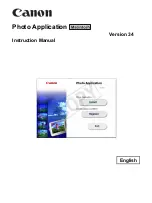
C H A P T E R 2
Using Dragon NaturallySpeaking Successfully
Dragon NaturallySpeaking User’s Guide
44
There’s usually no time requirement, but the more you read, the more it
can help Dragon NaturallySpeaking learn your pronunciation.
As you read, speak clearly, as if you were dictating the text into a document. This
will allow the program to learn how you sound when you dictate.
4
When you’ve read as much as you want, click Finish.
Creating specialized vocabularies
If you have Dragon NaturallySpeaking Professional, you have the option
of creating additional vocabularies.
An additional vocabulary can improve recognition accuracy if you have
different and distinct writing styles, and if the writing you do requires a
large vocabulary of specialized terms. For example, a health care
professional who uses Dragon NaturallySpeaking for dictating medical
reports and also for sending e-mail to friends and family may be able to
enhance recognition accuracy by having two different vocabularies: a
vocabulary for professional writing and one for informal correspondence.
Whether or not you need an additional vocabulary depends on how
many words you would need to add to your current vocabulary to make it
effective for all the writing you do. Unless this number is greater than
10,000 words (as it might be for a health care professional), you should be
able to add all the specialized terms you use to your current vocabulary
without compromising the recognition accuracy of other words.
Keep in mind that a single vocabulary is easier to maintain. If you have
different vocabularies, you may have to add and delete words in multiple
places.
Language data gathered when you run Vocabulary Builder is specific to a
single vocabulary. But acoustical data—information about how you
pronounce different words—applies across vocabularies. When you
correct a word in the Correction dialog box or train it in the Train Words
dialog box, Dragon NaturallySpeaking adjusts the acoustical data for that
word and all other words with similar sound patterns.
The one case in which acoustical data isn’t shared across vocabularies is
when a spoken form is added for a word. This pronunciation information
TIP
















































